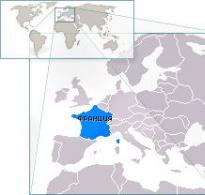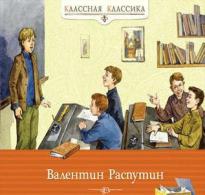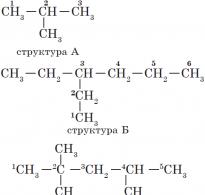Andreev biter year of writing. Nipper. Leonid Andreev. Who is Kusaka
c16a5320fa475530d9583c34fd356ef5
Chapter 1
The plot of the story "Kusaka" is based on the fate of a stray dog, which "belonged to no one." She was born on the street, never knew what "home" and "owners" were. She was afraid of any rustle and sound, she was afraid of people, because she saw only evil from them - street boys threw stones and sticks at her, and adults shouted at her and laughed, watching her run away. Yard dogs did not let her even close to the warmth of the house, and because of this, she moved farther and farther from the village. Only once in her life did she hear kind words from a man - it was a drunken man who was going home and was in such a state that he felt sorry for everyone. He also felt sorry for the dirty, skinned dog, which looked at him with a wary look. He called Kusaka to him, but she did not come up immediately, fearing a dirty trick. While she was thinking, the drunk suddenly felt bored and sad, and instead of stroking the dog that had fallen on its back in front of him, he kicked her in the side. Since then, the dog simply hated people and began to rush at them and bite.
Winter came. Kusaka found an empty cottage and settled under its veranda. She seemed to be guarding this dacha, even barking loudly and running out onto the road if someone passed by, which made her very pleased with herself.
Chapter 2
When spring came, people came to the dacha. Biter hid in the bushes and watched as they unloaded things. Then a girl came out into the garden, who was so fascinated by the garden and nature that she did not notice how a dog crept up to her - Kusaka grabbed her dress with her teeth and disappeared into the bushes. At night, Kusaka again returned to her place under the veranda - now it seemed to her that she was guarding not only the dacha itself, but also the people living in it.
Gradually, summer residents got used to the dog, going out into the street in the morning, asking about her, even gave her a name - Kusaka, to which she soon got used. People fed Kusaka, and every day she came closer to them, but she was still ready to run away and hide from any sudden movement. Kusaka was finally “friends” with people by the same girl whom the dog met on the day the summer residents arrived. Her name was Lelya, and she very affectionately called Kusaka to her, promising to give sugar if she came up. And it happened - for the second time since the moment of birth, Biter approached the person and lay on her back, closing her eyes, because she really did not know what to expect. But Lelya did not offend the dog - she stroked it. And then she called the children, who immediately ran up. Kusaka was alert - before, the children were almost her main offenders, but she understood that if one of these children hit her now, she would no longer be able to bite him, because she no longer felt anger towards people.
Chapter 3
So Kusaka understood what it means to be "someone's" dog. She was well fed and not offended, and although she was used to eating very little, this was enough to make her coat clean and shiny. In gratitude, Kusaka learned to “play” - somersault, jump and spin, however, she did it so clumsily that it caused everyone to laugh, but this laugh did not give rise to resentment in her. Kusaka no longer needed to look for food herself, and very rarely went outside the dacha. And at night, she still vigilantly guarded "their" owners.
Chapter 4
Autumn came, and summer residents began to gather in the city. Lelya asked her mother what to do with Kusaka now, and she replied that Kusaka would have to be left in the country - she could not be kept in the apartment. Lelya wept bitterly, but her mother reassured her by promising to take a thoroughbred puppy in the city. And Lelya stopped crying.
Kusaka watched as strangers packed things, realizing that something bad was happening. Lelya came out and called Kusaka with her to the highway. It was raining, and Lelya, suddenly feeling bored, turned back. Soon everyone left for the station, and only there Lelya realized that she had not said goodbye to Kusaka.
Chapter 5
But Kusaka could not understand what had happened - she even ran away in the rain to the station, did not find anyone there and returned to the dacha. The night was coming. And this night seemed to fill the empty place in the soul of the dog. The dog howled, putting all the anguish and pain into its howl. The story ends with the words: "The dog howled."
The story of Leonid Andreev "Kusak" is about compassion, the responsibility of a person for those whom he has tamed. Subsequently, this idea was formulated and presented to the world in the form of an aphorism by another master of the word, the French writer A. de Saint-Exupery. The author of the story calls to feel the pain of the suffering living soul of a homeless dog.
History of creation and description of the story
The story of a stray dog is told by an outside observer. Biter grew up and became an adult dog despite the ruthless circumstances in which she found herself. The dog has no home and is always hungry. But the main thing that haunts her is the cruelty of people, strong people who have the opportunity to offend a weak animal. Kusaka dreams of affection and one day she dares to accept it, but as a result she gets kicked in the stomach with a boot. She doesn't trust anyone anymore. One day, being in the garden of someone else's dacha, the dog bites the girl who wants to caress her. So she gets acquainted with the family of summer residents and becomes “her” dog here.
A good attitude and daily food change not only the life, but also the character of a homeless animal. Kusaka becomes affectionate, guards the dacha and amuses the new owners with her funny joy. However, autumn comes, the girl Lelya leaves for the city with her family, leaving her four-legged friend in an abandoned dacha. The story ends with the dreary howl of a homeless and useless Kusaka.
main characters

L. Andreev wrote that, having made the main character of the story a dog, he wanted to convey to the reader the idea that “every living thing has the same soul,” which means that it suffers equally and needs compassion and love. Kusaka has a faithful heart, knows how to be grateful, responsive to affection and capable of love.
Another heroine of the story, the girl Lelya, on the contrary, does not appreciate fidelity, her love is selfish and fickle. The girl could be better, she has good moral inclinations. But her upbringing is occupied by adults, for whom well-being and peace of mind are more important than such “little things” as compassion and responsibility for a weak and trusting creature.
Story analysis
In a letter to K. Chukovsky, Leonid Andreev writes that the works included in the collection are united by one idea: to show that "all living things suffer only suffering." Among the heroes of the stories there are people of different classes and even a stray dog, but, as part of the “alive”, they are all united by “great impersonality and equality” and are equally forced to resist the “enormous forces of life”.

The writer shows the difference between pity, implicated in momentary emotions, and real, lively and active compassion. The selfishness of the girl and her family is obvious: they are glad that they were able to shelter a homeless animal. But this joy is not based on responsibility and largely comes from the considerations that the dog brightens up the suburban life of summer residents with its inept and unrestrained manifestation of joy. It is not surprising that pity for a homeless animal easily turns into indifference at the mere thought of personal inconvenience from living a dog in a city house.

The story, it seems, could be a story with a happy ending. Like the ones in Christmas stories. But L. Andreev aims to awaken the conscience of people, to show the cruelty of indifference to the suffering of a weak being. The writer wants a person to accept the pain of someone else's soul as his own. Only then will he himself become kinder, closer to his high calling - to be a man.
1) Features of the genre. The story is an epic genre; small form of narrative literature; a small work of art depicting a single event in a person's life. The work of L.N. Andreev "Kusaka" is written in the genre of the story. In his works of art, L.N. Andreev continues the literary tradition of the writers of the 19th century - he defends the humiliated and offended.
2) Themes and problems of the story. L.N. Andreev raises the theme of mercy and compassion in his short prose work "Kusaka". Describing the described situation, depicting the life of a dog, the writer makes people think about the consequences of their actions, teaches them humanity, a merciful attitude towards people. Good and evil are two opposite concepts, two extreme positions. Good in dictionaries is interpreted as positive, good, moral, worthy of imitation, something that does not harm other people. Evil is something bad, immoral, worthy of condemnation. In line with these ethical problems, there is a story by L. Andreev "Kusaka". The writer himself explains his position: “... In the story “Kusak” the dog is the hero, for all living things have the same soul, all living things suffer the same suffering and in great impersonality and equality merge together before the formidable forces of life” . The attitude towards animals is one of the criteria of morality for L. Andreev, and the naturalness and sincerity in communicating with them of children opposes the spiritual callousness and indifference of adults. The theme of compassion is revealed in the story through descriptions of Kusaka, the changed conditions of her life with the arrival of summer residents in the summer, and the attitude of people towards a homeless creature. Often people offend the most defenseless. For example, in the story "Bitter" one drunk felt sorry for a dirty and ugly dog, but when she lay down on her back in front of him to be caressed, the drunk man "remembered all the insults inflicted on him by kind people, felt bored and stupid anger and, with a flourish, poked her in the side with the toe of a heavy boot. The biter "absurdly somersaulted, clumsily jumped and twirled around itself," and these actions of the dog caused real laughter among summer residents, but people did not notice the "strange plea" in the eyes of the dog. The comfort of city life is not consistent with the presence of a yard dog, so outwardly kind people remain indifferent to the further fate of Kusaka, who remains alone in the country. And even the schoolgirl Lelya, who loved the dog so much and asked her mother to take her with her, “at the station ... remembered that she had not said goodbye to Kusaka.” Terrible and terrible is the howl of a dog once again deceived. “And to those who heard this howl, it seemed that it was groaning and rushing towards the light itself, the hopelessly dark night itself, and wanted to be warm, to a bright fire, to a loving woman's heart.” Biter's appearance changes depending on whether she feels the love of people; at first it was “dirty and ugly”, then it “changed beyond recognition...” and at the end it was “wet again, dirty...” In the pursuit of conveniences, material values, people forgot about the most important thing: kindness, compassion, mercy. Therefore, the theme of compassion raised in the story "Kusaka" is relevant. A person should think about the consequences of his actions, protect the disadvantaged, and the work of the Russian writer Leonid Nikolaevich Andreev teaches the reader all this. The French writer Antoine de Saint-Exupery in one of his books said that people are responsible for those they have tamed. Those kind people, who are mentioned in L. Andreev's story "Kusaka", are unfamiliar with this truth. Their irresponsibility, their inability and unwillingness to take responsibility for those whom they tamed, led to the road leading to evil.
3) Characteristics of the heroes.
Kusaka image. In his story “Kusaka”, Leonid Andreev portrayed a stray dog as the main character, which “belonged to no one”.
Kusaka - no one needs a creature that does not know a name, lonely. The life of such animals is bleak: "the guys threw stones and sticks at her, the adults hooted merrily and whistled terribly, piercingly." Fear, alienation and anger - these are the only feelings that the dog experienced. With the onset of spring, the life of the dog changed: kind people who settled in an abandoned dacha, and especially the schoolgirl Lelya, caressed the dog: she got a name, they began to feed and caress her. Kusaka felt that she belonged to people, "her irreconcilable malice was taken away from her." Kusaka strives for people with her whole being, but unlike domestic dogs, “she didn’t know how to caress”, her movements and jumps were awkward, causing everyone to laugh uncontrollably. Biter wanted to please, and only her eyes were full of "strange pleading". The writer does not write what the dog asks for, but a thoughtful reader understands that at the dacha Kusaku is perceived as a living toy that fills the monotonous summer days with fun. Summer residents do not think about the true feelings of the dog. But, in spite of everything, Kusaka is grateful to people, now “you don’t need to worry about food, because at a certain hour the cook will give her slops and bones.” The nature of the dog has changed: it has become more open, "sought and asked for affection", gladly guarded the old dacha, guarded people's sleep. With the onset of autumn, Kusaka’s life changed again: people gathered to return to the city, where they don’t need a yard dog: “We don’t have a yard, but you can’t keep it in the rooms, you yourself understand.” The state of loss in the animal is conveyed by the descriptions of the outgoing summer: “the rain either began to fall or subsided”, “the space between the blackened earth and the sky was full of swirling, rapidly moving clouds”, “a sunbeam, yellow and anemic”, “foggy became wider and sadder autumn distance. In this episode, Kusaka is compared with the fool Ilyusha, who is laughed at by people and who is also misunderstood and lonely. Kusaka was again left alone in the country. But now the dog's life is even harder, because she was again abandoned by those people whom she loved and trusted: "the dog howled - evenly, persistently and hopelessly calmly." Describing the image of Kusaka, JI.H. Andreev uses various techniques: he describes the feelings and behavior of the animal, compares the state of the dog with pictures of nature, compares the attitude of people to the weak and defenseless: to the fool Ilyusha and to Kusaka.
4) The role of the landscape in the story. Landscape in literature is an image of living and inanimate nature. The psychological function of the landscape - the state of nature is correlated with feelings and experiences. A special case when nature becomes the protagonist of the work, for example, Andreev's dog Kusak. Descriptions of nature play an important role in conveying Kusaka's mood. When Kusaka is alone, everything in nature is gloomy; cold, slush, rain; when Kusaka loves and is loved, then the sun, warmth, flowering apple trees and cherries are all around.
Andreev's story "Kusak" was first published in 1901 in the Journal for Everyone. In the work, the author reveals the themes of mercy, compassion, the ability to bear responsibility for those whom we have tamed. Summer residents keep a stray dog at home for the summer, but do not want to take care of the animal further. With the advent of autumn, people leave Kusaka in the country as something unnecessary, not thinking about how the dog will endure the approaching cold.
At school, the story is studied in the lessons of Russian literature of the 7th grade. On the site, you can read online a summary of the Biters, as well as check your knowledge of the work by passing a short test.
main characters
Nipper- a stray dog that summer residents sheltered for one summer.
Lelya- a schoolgirl who "caressed" the dog.
mother, children- people in whose country house the dog lived.
I
"She didn't belong to anyone." The dog had no name, it was not known what it fed on. “The yard dogs drove her away from the warm huts.” On the street, the guys threw sticks and stones at her, and the adults hooted and whistled. In fright, the dog ran to the edge of the village and hid in the depths of a large garden.
Only once she was caressed by a "drunk man" who was coming from a tavern. He loved and pitied everyone, which is why he called the “dirty and ugly” dog. But while she hesitated to come closer, the mood of the drunken man changed. He remembered all the insults inflicted on him and, when the dog lay down on his back in front of him, “with a flourish he poked her in the side with the toe of a heavy boot.”
Since then, the dog did not trust people who wanted to caress her. She either ran away from them, or attacked with malice, trying to bite.
For one winter, she settled under the terrace of an empty cottage without a watchman and "disinterestedly guarded her." At night, she barked until she was hoarse, and after that she felt "some satisfaction with herself and even pride."
II
Spring has come. The gardeners are back. “The first person the dog met was a pretty girl in a brown uniform dress” Lelya. Rejoicing at the arrival of spring, the girl began to spin, but the creeping dog pulled her by the hem of her dress and disappeared into the bushes. Frightened, the girl ran away, shouting that the children and mother should not go to the garden.
“The summer residents who came were very kind people.” “At first they wanted to drive away the dog that had frightened them and even shoot it with a revolver,” but they soon got used to it and began to call it “bitter”, fed it with bread.
Every day the dog got closer and closer to people. Then Lelya began to affectionately call the animal. Soon, with apprehension, the girl herself approached the dog. “Not knowing for certain whether they would hit her or caress her,” Biter rolled onto her back. "But she was caressed." The girl called her family. Seeing the children come running, the dog froze with fear, but "everyone vied with each other began to caress her." “And it hurt her from an unusual caress, as if from a blow.”
III
Kusaka bloomed with all her dog soul. "She belonged to the people and could serve them." Although she ate very little, “but even this small thing changed her beyond recognition: long hair,<…>cleared, turned black and began to shine like satin. Now no one teased her or threw stones at her, but she was still afraid of people. Unlike other dogs, Kusaka did not know how to caress, rub at the feet of the owners.
To express her gratitude, admiration and love, "she absurdly somersaulted, clumsily jumped and twirled around herself", becoming ridiculous and pitiful. The new owners gathered around her and laughed. Previously, the dog was shouted at to see its fear, but now it was caressed to arouse in it a surge of love, "infinitely funny in its clumsy manifestations."
Over time, Kusaka got used to the fact that she didn’t need to take care of food, she began to ask and look for caresses herself, rarely ran away from the dacha.
IV
Autumn was coming. Lelya asked her mother what they would do with Kusaka. She replied that the dog would have to be left - they do not have a yard, and they cannot be kept in a room. The girl cried in frustration. Mom said that she was offered a thoroughbred puppy, Kusaka is an ordinary mongrel.
The summer residents were leaving, and Lelya called the dog. They got out onto the highway. It was raining, outside the tavern people were teasing the village fool. Watching all this, Lelya uttered: "It's boring, Biter!" and went back. “It was only at the station that she remembered that she had not said goodbye to Biter.”
V
“Kusaka rushed about in the footsteps of the people who left for a long time, ran to the station and - wet, dirty - returned to the dacha.” She even looked into the glass door, scratched with her claws, but the house was empty, and no one answered her.
"The night has come. And when there was no longer any doubt that it had come, the dog howled plaintively and loudly. “And to the one who heard this howl, it seemed that the very dark night was groaning and rushing towards the light, and longing for warmth, for a bright fire, for a loving woman's heart. The dog howled."
Conclusion
In the story "Kusaka" Leonid Andreev, through the image of a stray dog, raises the issue of uselessness. As the author himself wrote: “It doesn’t matter to me who“ he ”is - the hero of my stories: a priest, an official, a kind man or a beast. Only one thing is important to me - that he is a man and as such bears the same hardships of life. For Kusaka, the betrayal of people becomes a real tragedy - now she will have to return to her old life, she will be even more afraid of love and affection.
Story test
Check the memorization of the summary with the test:
Retelling rating
Average rating: 4.7. Total ratings received: 2526.
A dog living in an empty dacha sees only bad things from people all his life. The owners are coming to the cottage. The dog gets used to them, but in the autumn they leave, leaving her alone again.
A dog accumulates anger at the world all his life, where both people and other dogs offend him. In winter, she finds an empty cottage, settles under its terrace and disinterestedly guards it.
Summer residents come in the spring. The first dog meets a girl, Lyolya, a schoolgirl. At the first meeting, the dog frightens her, jumps out from behind the bushes and tears off a piece from the dress. Over time, people get used to her and give her the nickname Biter. Kind summer residents feed the dog, and Kusaka every day reduces the distance between himself and people by one step, but is still afraid to come closer. Lelya still comes up to Kusaka and strokes her. So for the second time in his life the dog trusted the man. From that moment on, Kusaka is transformed, now she belongs to people and rightfully serves them.
In the fall, Lelya leaves for the city with her family. It’s a pity for Biter, but you can’t take a dog with you to your apartment. Before leaving, the girl comes to the garden, finds a dog. Together they go to the highway. “It's boring,” Lyolya says, and goes back, and only remembers the dog at the station.
The dog rushes about in the footsteps of the departed people for a long time. Returning to the dacha and realizing that she was left alone again, she howls loudly from loneliness.





